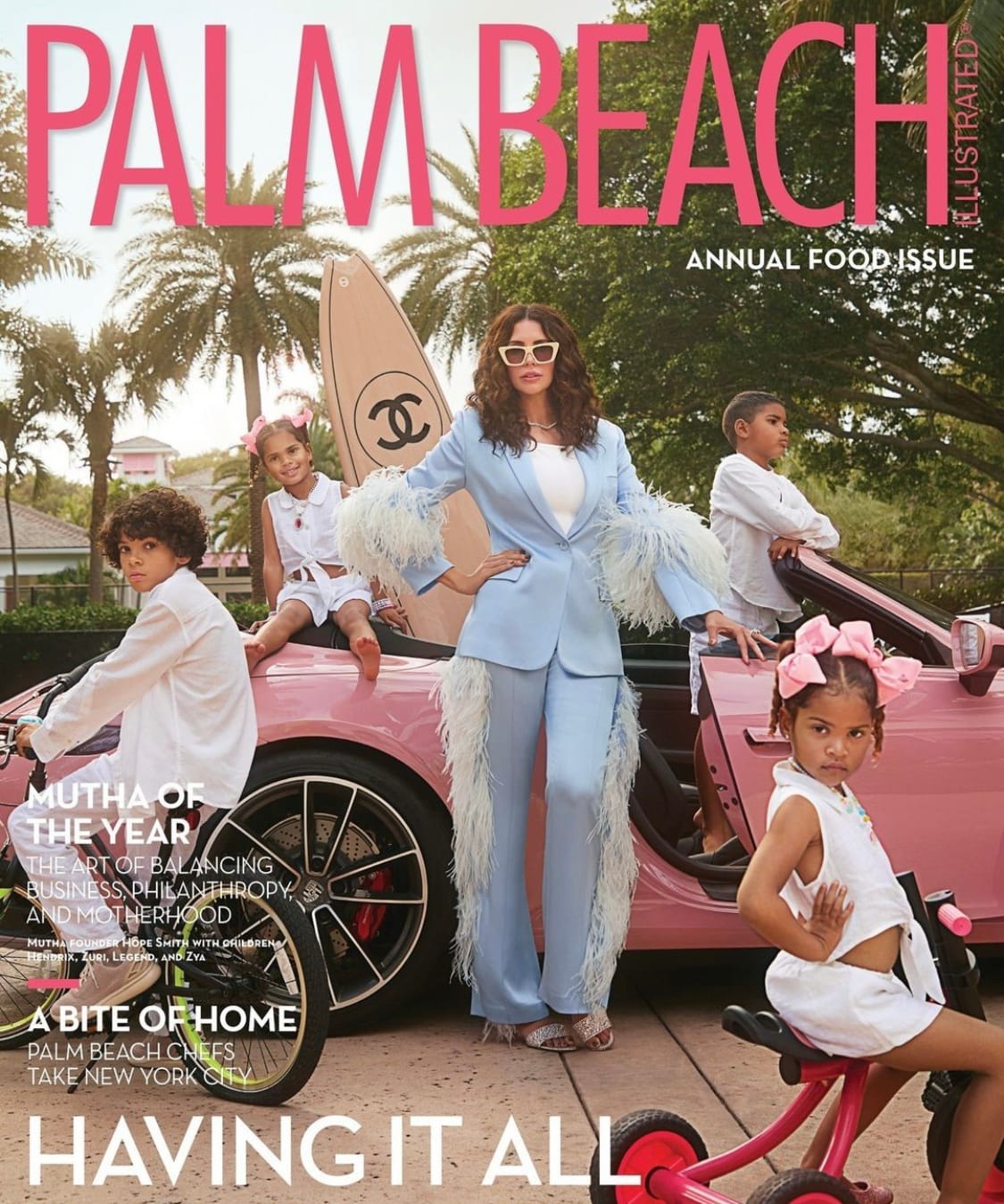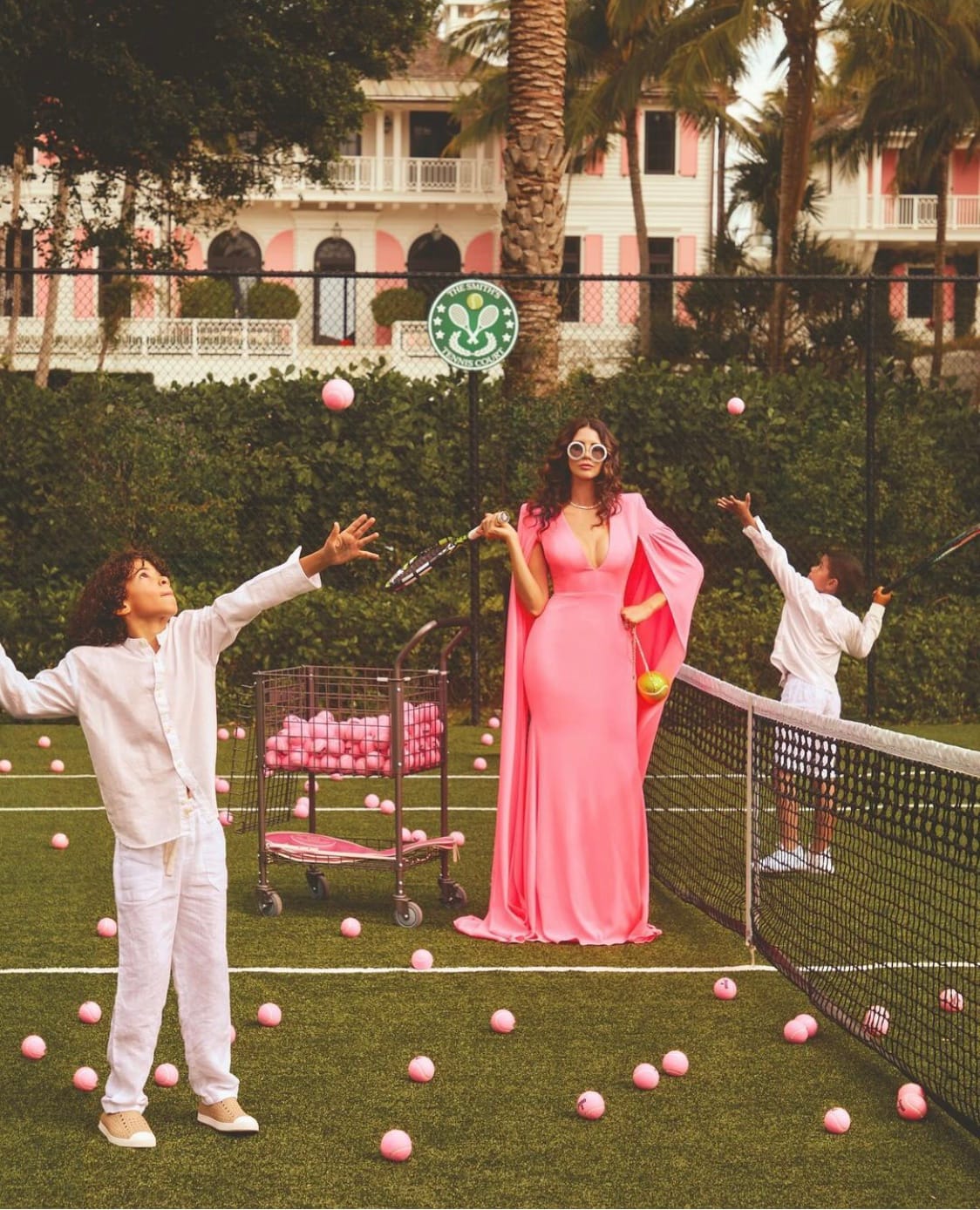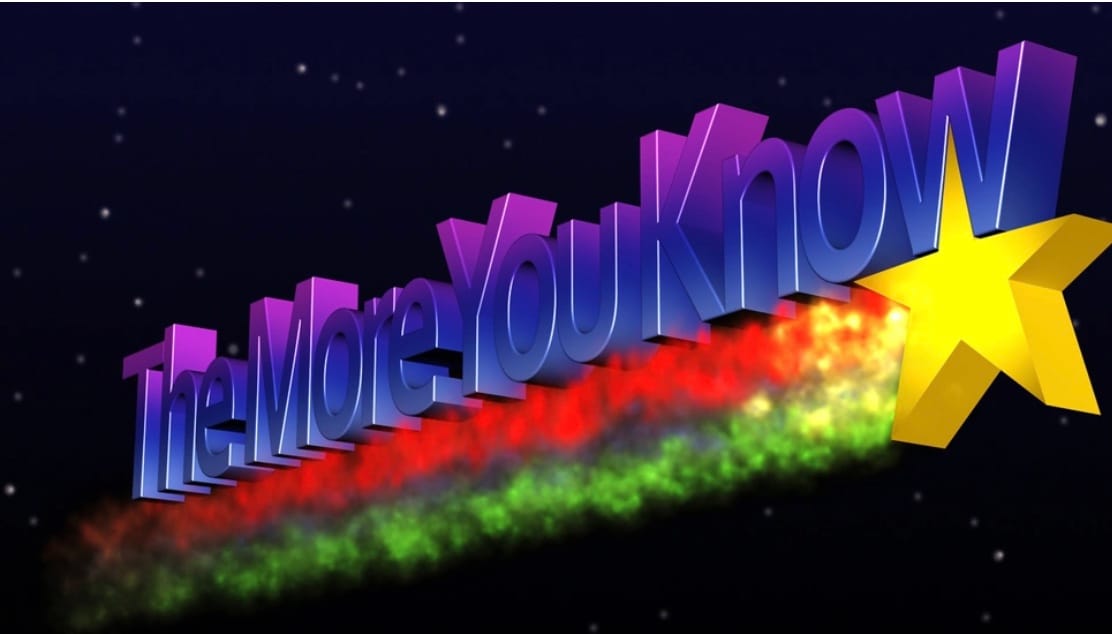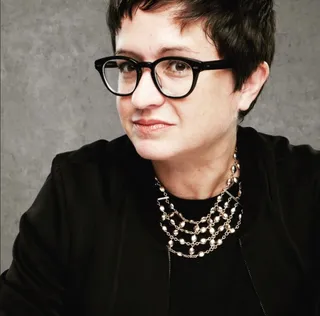MUTHA Knows Best
Hope Smith does it all, plus imagining your own startup and tons of facts about CEOs.

Hope Smith was a small town girl who dreamed of making it big in New York. And boy did she ever. She walked international catwalks. She launched her own medical spa. And she created the Canadian television show Inside Fashion. She takes really deep dives into whatever it is she wants to know. As someone who gets really geeked out about learning new things, I like this about her (even though as a journalist I'm probably not supposed to admit that). There's a lot of substance behind her incredible style, but there have been moments in her life when that has been overlooked.
The reason? The two days in her life in 2009 when she posed for a Playboy magazine cover and centerfold.
“People love to ask questions about visiting the Playboy Mansion and what it was like to know Hugh Hefner,” says Hope, who also researched, wrote, and self-published the pregnancy and childbirth book Your Body is Magic in 2022. “But nobody wants to know about any of my travel for Fashion Week. Nobody asks about Inside Fashion, which was an idea I had and then pitched and convinced people to put money into it. It’s reductive, because I’ve gotten more recognition for the way I’ve shown up and looked than for the ideas I’ve had in my own mind.”
However, ever since Hope launched her luxury skin care line Mutha in 2019, that seems to be changing. What began as Hope’s kitchen-based quest to reverse her pregnancy stretch marks has grown into a major business that has earned this mother of four accolades that include an “Inspiring Female Founder” designation from Forbes in 2020. She’s not the only Forbes-honored CEO in the house; in 2017, the magazine listed her husband, Robert F. Smith of Vista Equity Partners, as one of the “100 Greatest Living Business Minds.” The secret to Hope’s success? Putting her head down and doing the work, one action item at a time.
For more on Hope – and a wee bit about some of the fashion pieces she loves to collect (you'll see the tan Chanel rainboots she scored in London in one of the photos from the shoot) – take a peek at this story I wrote about her for the May issue of Palm Beach Illustrated. Many, many thanks to everyone who helped make the story and this incredible photo shoot with her kids possible. I just couldn't believe how fabulous the pictures turned out when I saw them. I mean, they're so good, I'm not even sure people will realize there's a story there too. But there is...trust me.
Writing prompt: Some really rich dude gives you startup capital because he suspects you've got a good business idea in you. (I don't think it works that way, but just play along...) What's your idea, who is your ideal customer, and what sort of steps will you take to make this business real? As you write all this down – or at least think about it – identify your "why" statement, or that higher purpose that inspires you and acts as the source of all that you do.
Stuff from the Cutting Room Floor

The sad thing about writing stories is that you have to write to a specific wordcount. There is inevitably something – or many things – that doesn't make it into the piece. That was certainly the case with this Hope Smith story, and the good thing about having a newsletter is that you can share the things that didn't make the final cut. So here we go...
Q: You've mentioned that strong women have influenced you. Which women come to mind and in what ways did they influence you?
A: I first think about my grandmother who came from very simple background and she ended up getting a doctorate. She put herself through school, even though she had children, and she ended up being a principal. I grew up seeing women like her hold positions of power and it inspired me.
When they first asked me to pose for Playboy, I called my grandmother, laughing it off, because I thought she would tell me "no way." But she was silent for a little while and said, "If I were you, I'd go for it."
Q: How have the women in your family influenced the way you raise your own children?
A: My mom had four kids and she was a nurse and didn’t have a nanny. So my mom was in charge of holidays, and getting us to sporting events and she just somehow did it all. I remember one of my best friends telling me with Robert that I needed to get a baby nurse. I remember looking at Robert and looking at her and thinking at the time “Gosh they don’t think could handle my own baby?” I took it as personal assault. That being said, I did get a baby nurse, who I loved. But I'm very hands-on. I just don’t think anyone will raise your child like you will.
Q: What inspired your first foray into skincare?
A: Modeling doesn’t last forever. You wont be modeling when you're 25, they say. So I started thinking about other things that I might like to do longterm. No one really had medical spas at the time, so I opened up one in Houston. I didn’t have great skin during puberty. So having control over my skin was why I wanted to get an aesthetician license and then open this spa.
Q: How did that experience guide your thinking with MUTHA?
A: I got my first stretch marks in puberty. I remember growing up seeing them on my mother and I didn’t like them. When I got them on myself, I was so embarrassed by them. I wouldn’t wear short shorts or a low cut shirt that showed off too much. So during my first pregnancy, I knew every woman in my family got them, and that I got them, so I wanted to do my best to make them look better. I began thinking wondering what I would order for myself if I could make my own product, and I started ordering raw ingredients made for larger skincare companies. The smallest amount you could buy was five gallons. So I made batch after batch in my kitchen until I had a great product. People started asking for it. I would know about pregnancies before people’s mothers did. It wasn't a brand yet. It happened because I knew the makeup artist or celebrity or whoever in L.A. that would ask for it for friends. Word spread like wildfire because it works.
Facts about CEOs

Since we're talking about a lady boss today, let's look at some statistics about those who sit atop the corporate pyramid.
- According to Zippia, 68 percent of CEOs are men, while 32 percent are women.
- More than half the women in the workforce feel lonelier the higher they climb in their careers. Roughly 30 percent of female leaders feel they have no support.
- The average age of a CEO is 51.
- Seventy-six percent of CEOs are White, while 7.9 percent are Latino, 7.8 percent are Asian, and nearly four percent fit into a category called "unknown."
- Twelve percent of CEOs are LGBTQIA+.
- The average CEO salary is $192,000, which seems low when you think of the aggravation involved. Little wonder then, that more than half of upper-level managers report feeling burned out.
- According to a recent PricewaterhouseCoopers study, 45 percent of CEOs said their companies would not be viable in a decade if they continued on their current path.
Endnotes
What kind of business I'd start with my imaginary startup capital: Because I am not the brightest bulb, probably a publishing company or a bookstore with a restaurant element. Feed your face as you feed your brain, you know? This idea probably stems from my fond memories of spending time with friends at the late, great Louie's Bookstore Cafe in Baltimore. That place was the best. The fact that I have to refer to it in the past tense should either be a red flag for my imaginary business plans, or a sign that the market wasn't ready then, but it is now. You be the judge.
What I'm reading: The Demon of Unrest by Erik Larson.
What I'm watching: Season 3 of Welcome to Wrexham. Red Devils manager Phil Parkinson remains the undisputed king of f-bombs dropped in a single sentence. I mean, we're talking damn near every other word, and sometimes shoehorned into words, too. Parkinson is a master craftsman, and I just love the Wrexham, underdog-made-good (or at least trying to) story so much.
What I'm wondering about: Whether the Sundance Film Festival might actually relocate to a new site after 40 years in Utah. Atlanta and Savannah are among the cities that have submitted applications for preliminary consideration to host the event starting in 2027, and will find out whether they made the cut on Monday, May 6. If selected, they have until June 21 to submit a formal bid.
What I'm thinking about: The views from the train between Nice and Marseille. Ooh la la...
Where I hope you'll donate this week: The Conscious Kid is an education, research, and policy organization that supports families and educators in taking action to disrupt racism, inequity and bias. It is also an organization close to Hope Smith's heart, as her four children have been impacted by racism in their own lives. “When my son was 3 years old he came home from preschool and told me light skin was better than dark skin. I was furious,” she said. Hope's company MUTHA created a $60 F* Racism candle, and she donates 100 percent of sales from it to the nonprofit. Donations to The Conscious Kid go towards supporting partnerships with Title I schools and other nonprofits, providing free education and content on social media platforms, and continuing to advance the mission of supporting healthy racial identity development and disrupting racism. Please, if you can, give what you can to support this important work.
Next week's issue: A bit of time travel. We'll meet a glamorous expat couple who inspired some of F. Scott Fitzgerald's fiction and found themselves in the middle of that interwar cluster of creatives known as the Lost Generation. This is based on a class I taught for LSU Continuing Education and I truly loved every minute of it. I hope you love it too.
Paige Bowers Newsletter
Join the newsletter to receive the latest updates in your inbox.




